If you’ve been exploring the trading world for more than a few months, you are probably familiar with Gregg Sciabica. Gregg, who goes by @lx21, is a well-known trading veteran who has continued to thrive in changing market conditions that have wiped out other successful traders.
Gregg recently did an interview with Exceptional Trader where he discussed his trading history and shared priceless advice.
Gregg’s History
From a young age, Gregg always had high ambitions. He always found himself drawn to entrepreneurial ventures and was particularly fascinated by the concept of making money by playing with numbers. Initially, Gregg wanted to be a sports better. He would analyze sports facts with the hope of getting an edge. In fact, when asked by a teacher what he wanted to be when he grew up, Gregg responded with, “A professional gambler and part time stock trader.” At this time, day trading was not what it is today and the idea seemed a bit outlandish. That said, Gregg continued to look for ways to make this dream a reality.
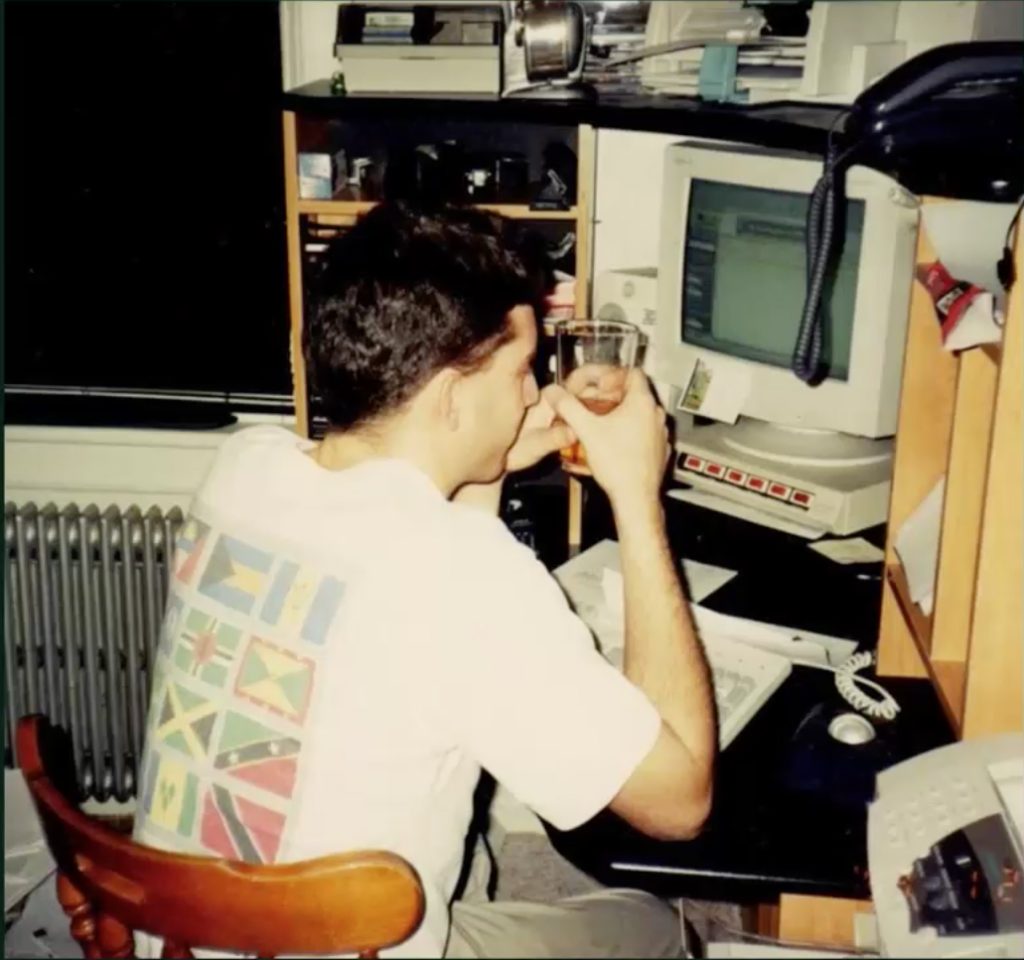
From Swing Sets to Stock Trades
As mentioned above, Gregg always had a mind geared towards entrepreneurial ventures. One of these ventures came in the form of a custom swing set company. Gregg had worked incredibly hard to grow a custom swing set company. After the first year, the company generated a considerable profit and Gregg wanted to find a way to make the most of it. The interest generated from a savings account seemed minimal when compared to other opportunities, so Gregg began to focus on the stock market again. His history in sports betting already laid the foundation for an analytical thought process that could be applied to stocks. The biggest game changer? Technology.
Trading Becomes More Accessible
As technology improved, day trading became more accessible. It became easier to research stocks, study charts, and place trades with ease. At this point, Gregg knew he had all the tools he needed at his disposal. He began a thorough research process that now represents the foundation of his trading strategy today.
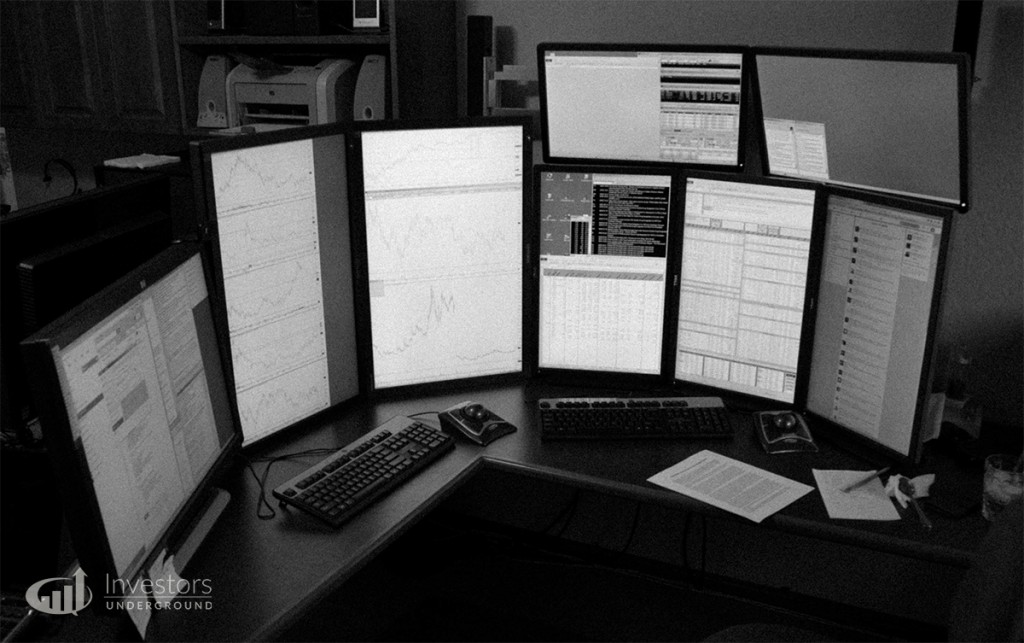
Gregg’s Strategy and Early Years
Gregg strategy was heavily rooted in facts and numbers. He was obsessed with the idea that the market could be “cracked” and would work endlessly to find the perfect system. By creating a strategy that relied on numbers, Gregg was able to avoid second guessing himself because he let the data do the talking. Admittedly, this was also a great time to trade because of the Internet bubble.

Gregg mentions that as a new trader, he was a bit more naive. Without any major losses on his record, he was able to have more confidence in his strategy. Luckily, he still had a good grip on the markets and was able to become a profitable trader.
Approach to Learning
Gregg’s approach to developing a trading strategy was always heavily focused on self-sustainability. During the formation of the Internet bubble, many successful traders started services, promoting their “evergreen” trading strategies and “hot” stock watch lists. While Gregg explored what these other traders had to offer, he never found anything worthwhile. Instead, he focused on developing his own strategy that he knew he could rely on.
Far too many new traders try to find people to follow. One commonality between many successful traders is that they develop their own strategies. They do not copy others and they do not look for the fast track to success. Gregg continues to stress that trading is hard work that requires dedication and a considerable investment of time.
Changing Market Conditions
As the internet bubble started to burst, many previously successful traders succumbed to the markets as their once profitable strategies were rendered futile. Gregg continued to analyze the data and was able to avoid letting this massive market drop destroy his trading career. Gregg mentions that he was both blessed and cursed with a lower level of confidence in his trades. This isn’t to say that he had no faith in his system; it simply means that he was never overly confident in any of his ideas. Overconfidence can lead traders to rely too heavily on their own intuitions and fall victim to changing market conditions. By avoiding this overconfidence, Gregg was able to challenge his own ideas and avoid developing a strong bias. Ultimately, this was some sort of protective mechanism that allowed Gregg to adapt his strategy to changing market environments.
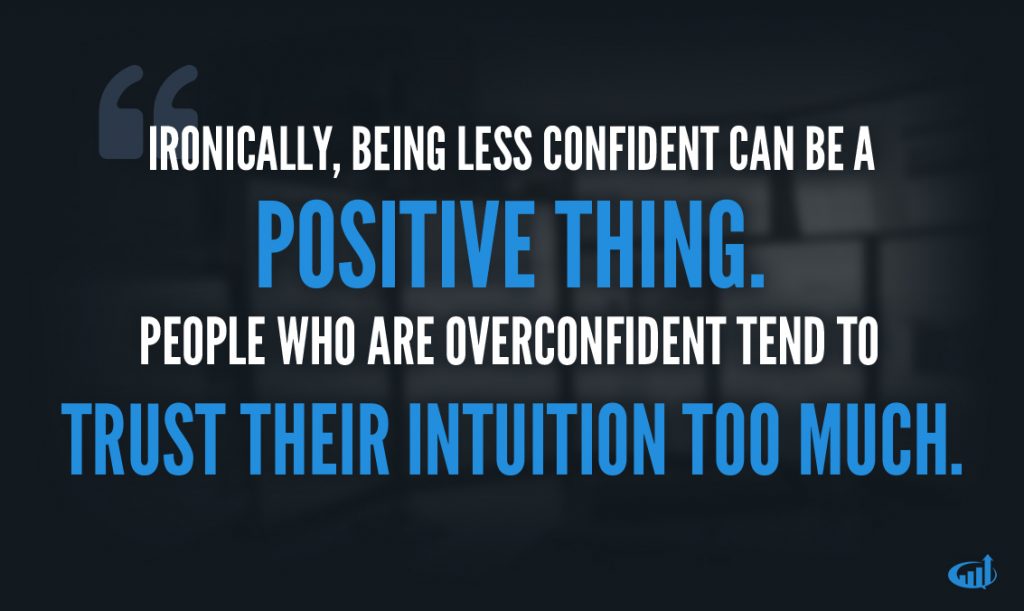
Quarterbacks and Desk Traders
Gregg draws many comparisons between the world of sports and the world of trading. Both athletes and traders are paid based on their performances. A quarterback doesn’t simply “show up” on the first game. He practices relentlessly before stepping foot onto the field. Gregg argues that the same approach should be applied by day traders.
It is important for traders to always practice their crafts. Study charts, research companies, and do whatever it takes to make yourself a better trader. You cannot get away with cutting corners in the market, at least not for very long. It doesn’t matter how good you are. If you want to be a successful day trader, you need to constantly work on refining your skill set.
Advice for Traders Looking to Scale
Very few day traders reach the level of success that Gregg has achieved. Even the top traders who have been fortunate enough to turn trading into a career can learn from Gregg’s trading history. In this interview, Gregg offers a few key tips for taking your trading to the next level.
Trading vs. Being a Trader
As a day trader, it’s important to differentiate between being a trader and trading. What does this mean? Often times, taking an active approach to trading can seem more effective than simply analyzing the markets. Many traders assume that they need to be trading simply because they are sitting behind a screen. This is not the case. Traders are not paid for “trading”; they are paid for capitalizing opportunities. This leads to the next point.
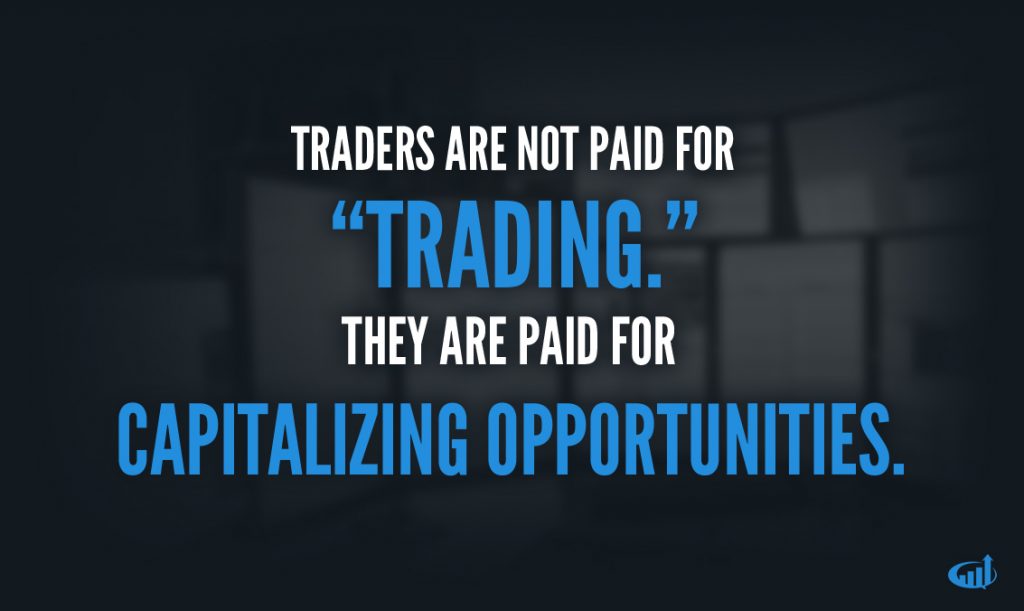
Good vs. Great
As you begin to get more experience as a trader, it’s important to be able to differentiate between a great setup and a mediocre setup. This may seem obvious, but as we mentioned above, many traders are simply looking to trade. After all, it seems like you are working more if you are trading actively. That said, your goal should be to find the trading setups that pay you the best. If you can make the same amount of money from one trade as you can from ten, you should shift all of your focus to the single trade. Those who follow Gregg and his website, 90 Percent Trades, know that Gregg doesn’t trade as actively as a lot of other successful traders. That said, Gregg capitalizes on the best opportunities, and his results speak for themselves.
TEST. TEST. TEST.
Traders should get in the habit of testing everything. Like everything process in life, you need to test a hypothesis before you can conclude any results. The same logic applies to trading. If you have a strategy or an idea, find a way to test it. Of course, you need to make sure you have the proper risk controls in place.
Later Career Insights
Gregg is constantly refining his strategy, often challenging his own ideas. Here are a few of the insights from later in Gregg’s trading career:
A Trading “Sixth Sense”
Gregg has always been an analytical trader. His reliance on numbers has allowed him to avoid biases and take a seemingly scientific approach to his trading. That said, Gregg has also discovered another trading advantage that can be developed over time. Sometimes, intuition can play a role in trading. Let’s be clear, this doesn’t mean you should stop reading filings and dispose of your stock charts immediately. In this regard, “intuition” is defined as, “relying on prior trading experience to help shape future decisions.” When a trader puts in thousands of hours of research and trading time, they begin to develop somewhat of a “sixth sense” for the markets. This isn’t some elusive market voodoo, but it is not as quantifiable as other aspects of a trading strategy.
Of course, it is important to keep in mind that Gregg’s intuition is tamed by his realistic approach to trading. Gregg does not get overconfident in his strategy, but he has started to allow his previous trading experience to shape some of his decisions.
Value of Peers and a Work/Life Balance
When Gregg first started trading, he would joke around by calling himself the “hermit trader.” He focused on numbers and was self-reliant so trading became a solitary activity. Over time, Gregg has seen the importance of adding a social element to trading.
Trading can be a grind and having moral support and an outlet to discuss trading can be beneficial. On top of that, Gregg enjoys helping other traders. Gregg stresses the fact that you need something in life besides money. Mentoring other traders and sharing your ideas can add a lot to the otherwise solitary trading experience.
Additional Resources
If an hour with one of the world’s greatest traders isn’t sufficient for you, there are a few other ways you can learn from Gregg.
Here is the interview we did with Gregg a few years ago:
Gregg will be one of many great speakers at our Annual Traders4ACause Charity Conference in Las Vegas.
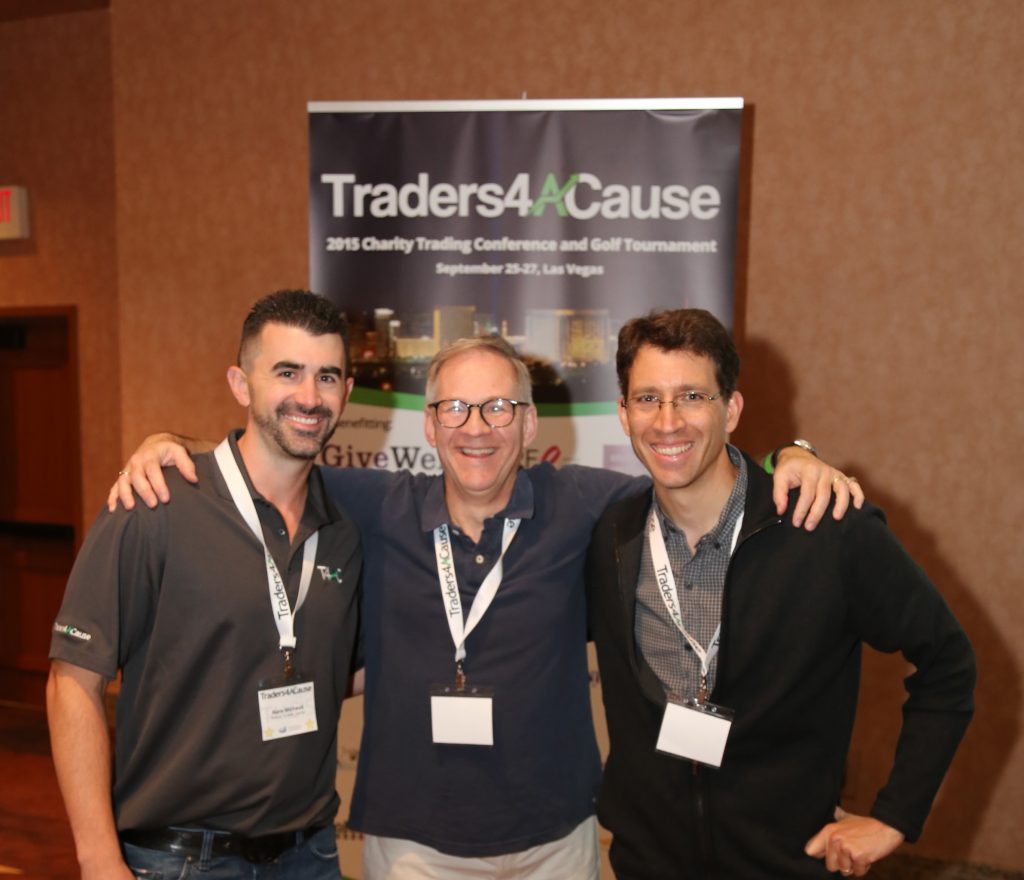
You can follow Gregg’s trades on 90 Percent Trades or follow him on Twitter for real-time market commentary.


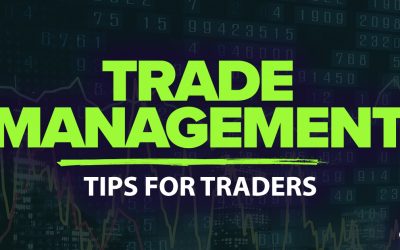

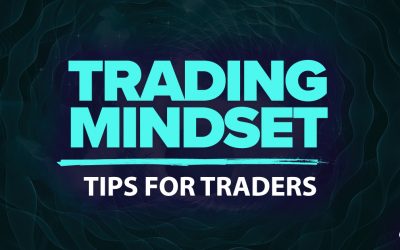
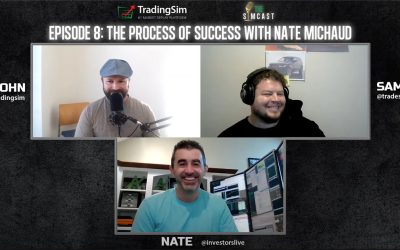


You guys nailed it, Gregg is “the oracle”. Great relevant information… Congrats and thanks..
Greg is always great to listen to, however, Momo Traders has everything that this interview covers plus much more !
TripleV was here learning. Thank you, Nate!
Great post! I like Gregg’s outlook.
GREAT ONE GUYS. GREG ROCKS